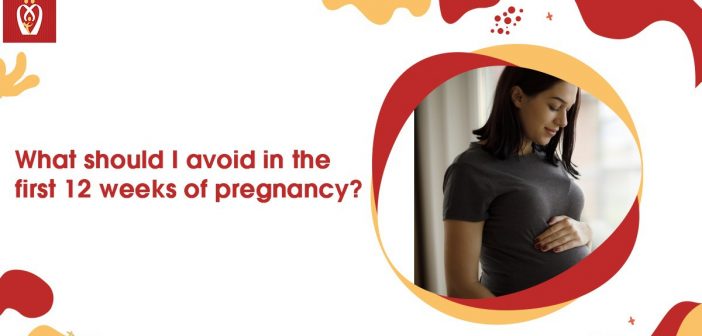First trimester: what is it?
There are approximately 40 weeks of pregnancy. The semester is broken into three quarters. A woman’s first trimester begins when her egg is fertilised by the sperm (conception) and ends when she is 12 weeks pregnant.
Pregnant women’s bodies undergo a number of changes during the first 12 weeks of pregnancy It is common for women to get concerned about:
- a meal plan
- prenatal testing options to consider
- what their weight increase potential is
- the best ways to ensure their child’s health
The first trimester is when the baby’s growth is at its greatest. A foetus can weigh between 0.5 and 1 ounce and be 3 to 4 inches long by the end of the first trimester.
During the first three months of pregnancy, miscarriage can occur. Approximately 10% of pregnancies are affected by this.
During the first 12 weeks of pregnancy, pregnant women are recommended to avoid certain activities and foods because of the rapid growth of the foetus and the danger of miscarriage.
In the first 12 weeks of pregnancy, you should avoid the following foods and activities:
Smoking should be avoided
Pregnant smokers are more likely to experience a miscarriage, and their kids are more likely to be born with birth abnormalities such as cleft lip and palate, as well as early birth, low birth weight, and even death. Therefore, they are also more likely to develop learning disabilities. The sudden infant death syndrome (SIDS) risk factors include smoking before, during, and after pregnancy (SIDS). Due to physiologic nicotine addiction, children born to mothers who smoked during pregnancy are more likely to smoke themselves.
Stay away from alcoholic beverages
Alcohol consumption during pregnancy is not safe, especially during 12 weeks of pregnancy. Similarly, there is no moment during pregnancy when ingesting alcohol is safe. A woman’s unborn child is at risk if she drinks alcohol while pregnant, even if she doesn’t realise she’s pregnant at the time. The baby’s central nervous system and growth can be affected, as well as facial abnormalities if alcohol is used during the first three months of pregnancy. Fetal alcohol spectrum disorders (FASDs) are a group of behavioural and intellectual problems that can develop in a child whose mother drank alcohol while she was pregnant (FASDs).
Don’t go to the sauna
Don’t use the hot tub or the sauna. Every time you use a sauna, whirlpool, hot tub, or steam room, you run the danger of being dehydrated, overheated, or even fainting. Your body’s core temperature rises because you are unable to sweat adequately. During your first 12 weeks of pregnancy, it’s likely that a considerable rise in your core temperature will have an impact on the development of your unborn child. Using one of these during the first trimester may actually increase your risk of miscarriage by as much as twofold, according to some studies.
It’s best not to eat for two
This adage has been around for quite some time. But don’t worry about it! Pregnancy weight gain is an issue for more than half of women, according to research. However, specialists disagree on whether you actually need any extra calories during the first 12 weeks of pregnancy.
Avoid eating raw meat at all costs
Listeriosis and toxoplasmosis, two potentially deadly diseases that can affect pregnant women who consume raw or undercooked meat or eggs, are in danger. Pregnancies that end in stillbirth can be caused by these infections. Before eating, make sure the meat and eggs are properly cooked.
Limit your caffeine intake
Because you’re so exhausted throughout the first 12 weeks of pregnancy, this one might be particularly challenging. Caffeine, on the other hand, can pass through the placenta and alter the heart rate of your developing kid. Some studies show that excessive caffeine use during pregnancy may increase the chance of miscarriage in the first trimester of pregnancy, which is around 200 mg per day, or roughly two cups of coffee.
Don’t let this list put you off; it’s nothing to be afraid of. Take good care of yourself. Eat well, drink plenty of water, and get plenty of sleep if you want to stay healthy.
You’ll be holding your baby in your arms before you realise it. As you embrace and cuddle your healthy newborn, remember to praise yourself for prioritising your own health. It’s all worth it when you have a happy, healthy baby.
Nurturey’s Pink Book lets you keep track of vaccines, health examinations and other data for your child. Furthermore, you can create a family account, schedule appointments, and receive personalised information about the NHS. Get the app today!
